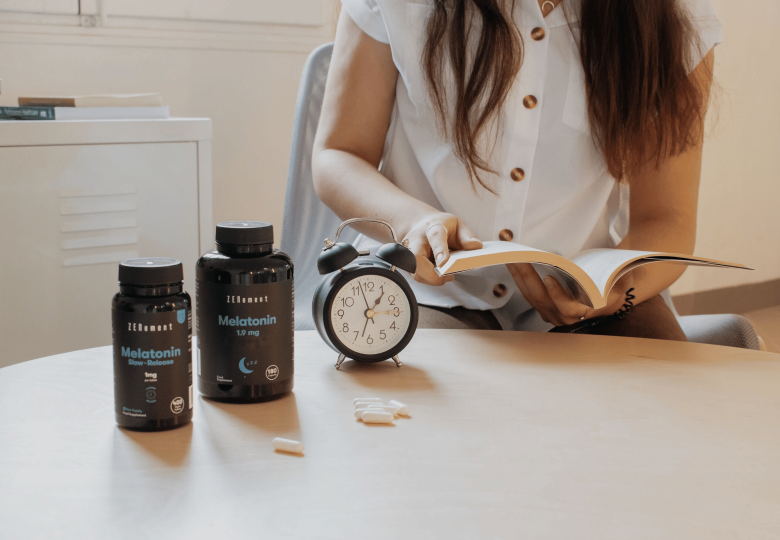Have you ever heard the term "biological rhythms" but you're not quite sure what it means? This term refers to our inner clocks that tell us when it is time to wake up, eat, or sleep. They help us to stay in tune with our environment. There are several types, but the most well-known are called circadian rhythms: physical, mental, and behavioural changes that follow a 24-hour cycle. There's a whole science behind these rhythms, and below you'll find out which molecules and parts of our brain are involved.
How We Process Stimuli and What Is Our Biological Clock
Chronobiology is the science that studies the rhythmicity of biological processes. Each person's biological rhythms are different, which is why some people are more productive in the morning, while others are more productive in the afternoon, or even at night.
To process environmental stimuli, our body picks up environmental cues, such as light, to internalise and synchronise these rhythms. The suprachiasmatic nucleus (SCN), located in our brain's hypothalamus, acts as our master clock, meaning it is responsible for generating our body's rhythms. When this nucleus senses information about the amount of light we are receiving through our retinal cells, it regulates cortisol and melatonin production through the corresponding brain structures, such as the hypothalamus or the pineal gland. In this way, we adapt to our environment's day-night cycle.
Food can also regulate our biological rhythms, but do you know how? Food restriction (not calorie restriction) causes the NSQ to stop being regulated by light and instead be governed by the time of day when food is available. On the other hand, calorie restriction causes our circadian rhythms to "reset", becoming less regulated. In addition, some foods like caffeine, glucose, and alcohol can have a direct influence on our biological clock.
Molecular Bases of Circadian Rhythms
Research in molecular biology has determined that biological rhythms in humans are controlled by 4 main genes, the CCGs (clock-controlled genes): CLOCK, BMAL, PER and CRY.
- During the day, CLOCK and BMAL concentrations are high, which allows active metabolism of fats and carbohydrates, so we have more energy.
- During the night, CLOCK and BMAL concentrations are low, metabolism is not as active and metabolic activity is controlled by the autonomic nervous system.
|
Did you know…?
|
Role of Cortisol and Melatonin In the Sleep-Wake Cycle
Now, let's delve into the chemistry of the matter. Two antagonistic hormones play crucial roles:
-
Cortisol: Known as the stress hormone. It is secreted by the so-called adrenal cells due to a signal from the hypothalamus, a brain structure. This hormone is most produced in the morning, preparing our bodies to wake up and giving us energy to start the day. Cortisol also promotes the production of free radicals, increases blood pressure, and raises our body temperature.
- Melatonin: This is our sleep hormone. It's the exact opposite of cortisol - when one hormone is present, the other is absent. As the light fades and gives way to night, the pineal gland increases its production, signalling that it is time to rest. Melatonin can activate defence genes against the production of free radicals and lower body temperature, which is why many people feel colder at night.

What Happens If Our Circadian Rhythms Get Out of Sync?
If the NSQ is out of sync it can be a big problem, as it controls our body's entire rhythmicity, including hormone release (endocrine system), and even some pathologies, such as cardiovascular diseases.
But how does this desynchronisation come about? If you have ever travelled between time zones and experienced fatigue or insomnia, you have experienced a misalignment in your circadian rhythms. This phenomenon, commonly known as jet lag, is a clear example of what happens when our biological clock becomes out of sync with the environment. This can lead to sleep problems, eating and body temperature imbalances.
How Can We Regulate or Keep Our Circadian Rhythms Stable
This is where your lifestyle habits and/or the help of food supplements come into play to keep your biological rhythm healthy and synchronised.
Here are a few basic tips:
- Keep a regular sleep schedule.
- Avoid exposure to screens before bedtime.
- Create a suitable resting atmosphere.
- Eat the right amount of food at a set time. This reduces the formation of free radicals, making the NSQ less active, but more effective at promoting melatonin's antioxidant action during sleep.
- Exercise.
If you need an extra boost to complement your natural rhythm, some key supplements can be great allies in maintaining your circadian rhythms, helping you balance your cortisol and melatonin levels:
|
Food Supplements |
Stress control |
Sleep improvement |
|
x |
x |
|
|
x |
||
|
x |
||
|
x |
||
|
x |
||
|
x |
||
|
x |
With a better understanding of your biological rhythms and how they work, you can make sure you are always at your best, both day and night.
Source: [1] https://www.nigms.nih.gov/education/fact-sheets/Pages/circadian-rhythms.aspx.


